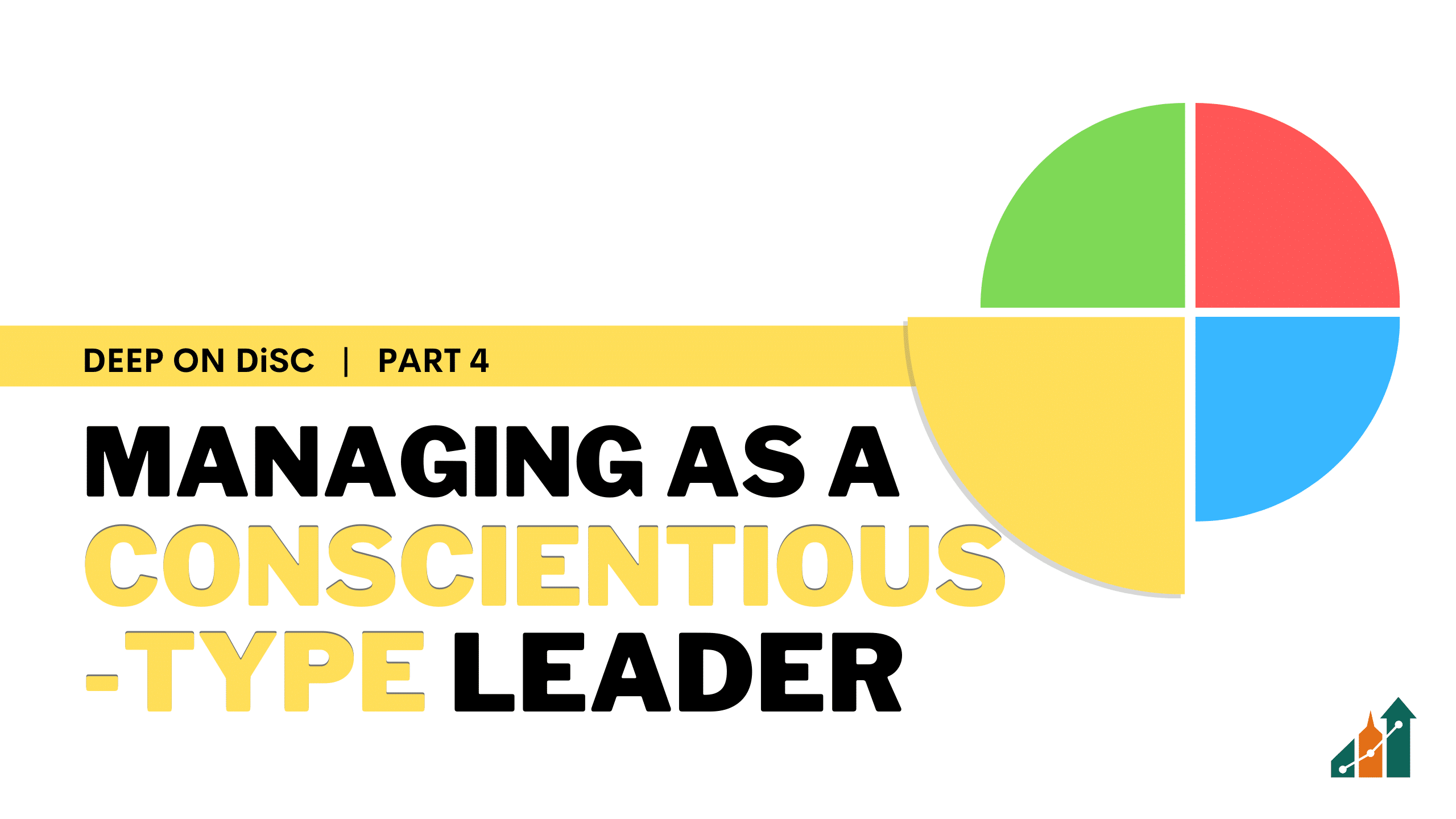Strengths, challenges, and keys to success for the Conscientious-Type or C-Type personality
The Church Revitalization Podcast – Episode 139
A lot goes into being a high impact leader—your skills, experience, education, emotional intelligence, and your calling all contribute to your success. However, your temperament and personality play a major role in how you interact with people and influence them. Leadership happens at the intersection of a person’s influence, capacity, and character. Your temperament colors all three of these factors.
Therefore, it’s helpful to understand your personality type and how it positively and negatively affects your ability to lead. Your temperament is a tool; it’s inherently amoral. Your personality isn’t evil or benevolent, but it is part of God’s divine design for your life.
There are a lot of helpful tools for understanding your personality. At The Malphurs Group, we regularly use the DiSC Assessment. The DiSC is fairly simple to grasp. No tool is perfect and people are more nuanced than any personality tool, so it’s helpful to have a tool that’s easy to grasp. It’s OK to recognize that personality assessments have limitations but still leverage them to help you become a better leader.
In this multi-part article and podcast series, we are exploring the primary DiSC types and how they impact your leadership.
In this fourth installment, you’ll learn the strengths, challenges, and keys to success for the C or Conscientious type personality.
Subscribe below to never miss an episode.
The DiSC can be broken down into two key axes: a horizontal scale from task to people orientation (Left to Right), and a vertical scale from an introversion to extroversion orientation (Bottom to Top). The “C” type sits in the bottom left box with an introverted task-orientation.
Strengths of Conscientious-Type Leaders
Organized and effective systems thinker
The C-type person is likely to be the “guy behind the guy” that makes the D or I Leader out front look good. They’re the ones actually putting the big ideas into action. For example, Conscientious-Type people get busy when the organizational vision is cast. For them, the pathway to vision accomplishment is the win, and maybe even more so than the vision itself.
Effective at implementing projects, organizing people, resources, and timelines
The C-type leader will bring the project to completion, and maybe even under budget, and early. For instance, when one of our Certified Guides works with a church on our Strategic Envisioning process, the implementation phase is run like any other project. Goals are set, along with owners and deliverables, and the role of managing those implementation teams is well-suited for the C-Type leader.
Plays by the rules
One of the things that the Conscientious-Type leader is conscientious of is the rules. They’re not usually the ones to buck the trends, and they operate well within boundaries. Even recommendations and guidelines may rise to firm rules for them. The Conscientious Leader is the one to put on the assignment when a team or organization needs rules to be followed. Think of statutory regulations for organizations in which required document filings are due on particular dates. You can count on the C-type leader to get that done.
Challenges of Conscientious-Type Leaders
Struggles to see outside of the box
As mentioned above, the C-type individual works well within boundaries, and asking them to come up with new ideas may yield few results. Additionally, in a senior pastor role, the church may lack vision and drive unless there is a close ministry partner on the team to help in that area.
Non-confrontational; won’t always share needed changes to make the organization better that might cause conflict
This can be a major challenge for someone of this type if they are in a senior-level ministry position. Forward progress in a healthy ministry environment will always demand tough decisions. The Conscientious-Type leader will struggle for fear of damaging relationships or dealing with uncomfortable situations.
Overly critical of other people’s performance and/or lack of adherence to the rules
In light this challenge, the C-type person is less likely to confront someone about their performance. They may just become angry about it themselves, and this can lead to passive-aggressive behavior. The strict rule and system followers get frustrated by others doing things differently.
Key to Success
Most people don’t see the puzzle pieces the way you do. Your ability to manage people, resources, and timelines is an undeniable gift to the church. Don’t forget that the pioneers and entrepreneurs on your team aren’t your enemies. They are your partners playing their role. Find ways to support one another to help your church reach its God-given potential.
BONUS: Watch this episode on YouTube.


A.J. Mathieu is the President of the Malphurs Group. He is passionate about helping churches thrive and travels internationally to teach and train pastors to lead healthy disciple-making churches. A.J. lives in the Ft. Worth, Texas area, enjoys the outdoors, and loves spending time with his wife and two sons. Click here to email A.J.

